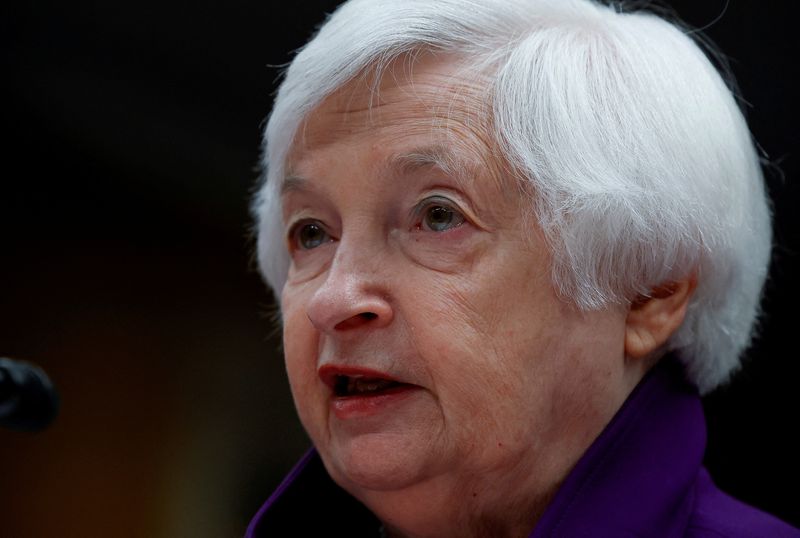Yellen says vigilant to downside risks given war in Ukraine, banking pressures
2023.04.11 10:35

© Reuters. FILE PHOTO: U.S. Treasury Secretary Janet Yellen testifies before a Senate Appropriations Financial Services and General Government Subcommittee hearing on President Biden’s proposed budget request for the Department of the Treasury for fiscal year 2024,
By Andrea Shalal
WASHINGTON (Reuters) – U.S. Treasury Secretary Janet Yellen said she remained vigilant to downside risks facing the global economy, given the negative economic consequences of Russia’s war against Ukraine and recent pressures on banking systems in the United States and elsewhere.
In remarks prepared for a news conference, Yellen said the global economy was in a better place than projected last fall, with energy and food prices having stabilized and supply chain pressures continuing to ease. A price cap on Russian oil was helping to stabilize global energy markets while reducing Russia’s primary source of revenue, she added.
Yellen, addressing reporters at the start of a week of meetings at the International Monetary Fund and World Bank, said the U.S. labor market was strong, but inflation was remained too high, although prices had moderated over the past half-year.
The U.S. banking system remains sound, with strong capital and liquidity positions, and the global financial system is resilient due to the significant reforms enacted after the 2008 financial crisis, she said.
The U.S. government last month took emergency actions to restore market confidence after the failures of Silicon Valley Bank and Signature Bank (OTC:), and subsequently announced more steps to increase supervision of mid-sized banks that do not require approval by the split Congress.
“Still, we remain vigilant to the downside risks,” she said.
Yellen said she had been in close touch with her foreign counterparts about the banking developments, and looked forward to continuing those discussions this week.
She said Treasury was committed to working through global bodies like the Financial Stability Board and the Basel Committee on Banking Supervision, while addressing vulnerabilities in nonbank financial institutions.








